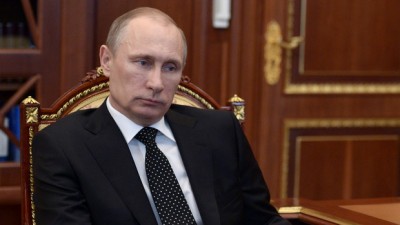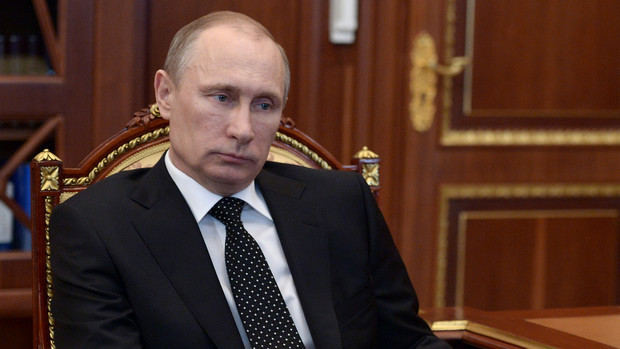 The broader sanctions from the United States and the European Union mark a new phase in what’s now the biggest confrontation between Russia and the West since the Cold War.
The broader sanctions from the United States and the European Union mark a new phase in what’s now the biggest confrontation between Russia and the West since the Cold War.
Despite the potential for fractured resolve from Europe, the world’s two economic superpowers want to hit Russian president Vladimir Putin where it hurts.
Just how hard and whether there’ll be follow-up sanctions is critical to the credibility of the EU and the US.
Rather than target people and entities close to Mr Putin, today’s ramped-up sanctions will aim to strangle Russia’s oil industry and government-owned banks.
While the sanctions are only in place for an initial ninety days, it is now clear that Europe has fundamentally changed its strategy in dealing with Russia.
And the risks are not confined to Russia, but are high for Europe itself which is struggling to rebuild its economy from the sovereign debt crisis.
So, naturally, deals have been done to appease unsettled EU members such as France, which has contracts in place for the delivery of two warships to Russia.
Under the sanctions revealed today, France can go ahead with that deal because of the fine print which says the new sanctions won’t effect previous contracts.
While Russia’s oil giants have been targeted, it’s natural gas industry has been quarantined.
That’s because Europe relies on Russian gas to power its industry and cities – and another cold European winter is only months away.
The broader sanctions against Russian oil producers might hurt western energy giants like BP, which could be hurt because it holds a 20 per cent share in Russia’s biggest oil company Rosneft.
Russia’s isolation from European capital markets will hurt financial hubs like London in the short term, as daily deals with Russia and the simple buying and selling of shares goes on hold.
But will the new sanctions open a new era of volatility on financial markets?
So far the losses have been limited, although Wall Street stocks ended 0.4 per cent weaker after the sanctions were announced in the final hour.
Investors are much more interested in the outcome of the Federal Reserve’s current policy meeting which is likely to cut the current quantitative easing by another $US10 billion a month.
ABC News

